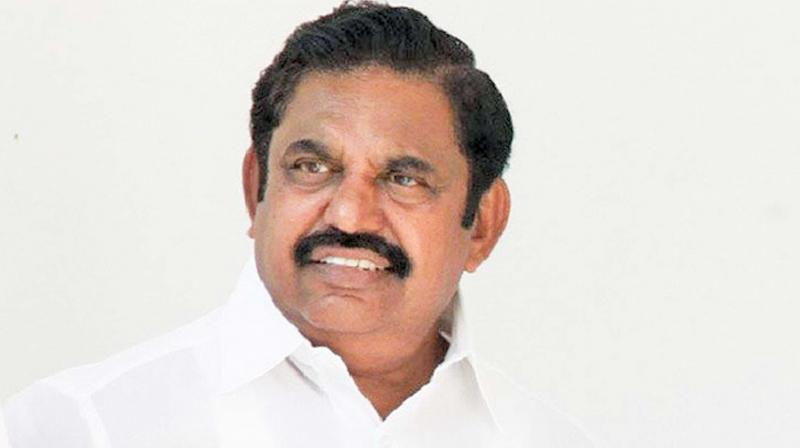To promote manufacturing of e - vehicles: CM unveils e - vehicle policy 2019
State industries minister M. C. Sampath and transport minister M. R. Vijayabhaskar received the first copies of the policy document.

CHENNAI: In a major multi-faceted approach to build, nurture and sustain an eco-system of manufacture and increased use of electric vehicles (EV) in the state, Chief Minister Edappadi K. Palaniswami on Monday released the ‘Tamil Nadu electric vehicle policy- 2019)' at the secretariat here.
The release of the new policy, significantly comes barely after a week of Palaniswami’s return from a three-nation tour abroad to attract more direct foreign investments (FDI) into Tamil Nadu, an important component of which is to get major players in EVs to invest here, as EVs are the future eco-friendly green technology in both private and public urban transportation.
State industries minister M. C. Sampath and transport minister M. R. Vijayabhaskar received the first copies of the policy document. The policy envisages a special package of tax incentives and infrastructure sops to promote new industrial investments “in the manufacture of electric vehicles, their auto components, particularly EV batteries, and manufacture of charging infrastructure.”
Units engaged in EV should invest above Rs 50 crore and create at least 50 direct jobs to be considered eligible for the special incentive package, the policy said, adding, all investments from April 1, 2018 will be considered eligible for the incentives.
TAX SOPS: The tax incentives include 100 per cent reimbursement of state GST (SGST), to manufacturing companies, on their sales effective till December 31, 2030, The reimbursement will be up to 100 per cent of eligible investment.
A 15 per cent capital subsidy on eligible investments for ten years, made in the state till December 31, 2025, full exemption of 'electricity tax' for EV related and charging manufacturing industries in the state till that date, 100 per cent stamp duty for transactions till December 31, 2022, for such units and a 15 per cent subsidy on the cost of land obtained from government agencies including Sidco and Sipcot. This land subsidy could go up to 50 per cent if investments are made in the southern districts.
The policy said for all new jobs created in the EV segment, till 31.12.2025, government will pay an incentive up to Rs 48,000 per employee for one year towards the employers contribution to the EPF. A higher capital subsidy of 20 per cent will be provided for units making EV batteries for 20 years.
The policy said government will develop exclusive 'EV Parks' in major auto manufacturing hubs and also in other potential areas, which will provide common facilities for vendor industries.
The government will also promote 'logistic parks and free trade warehousing zones', the policy stated. The MSMEs and start-ups will also get special incentives under the new policy. The government has also assured a single window clearance system for all investments under this sector.
While a steering committee chaired by the chief secretary will be formed to monitor the implementation of this new policy, the government will also encourage the re-use of EV batteries that "have reached the end of life".
MORE E-VEHICLES ON ROADS: The government assures policy support for development of 'charging infrastructure' in cities and other places, even as it has structured a full road tax exemption package for E-autos, waiting of permit fees for E-autos till December 30, 2022, E-taxis and all electric transport vehicles till that date.
The policy also includes incentives for conversion of all auto-rickshaws in six major cities of Chennai, Coimbatore, Tiruchy, Madurai, Salem and Tirunelveli to EVs' within a span of ten years, to be extended to other places in a phased manner, conversion of 21,000 government transport buses into EVs' at the rate of five per cent every year, introduction of 1,000 EV buses every year, and private bus operators will also be encouraged to transit to EV buses.
All school buses, mini-vans registered with the government, besides small commercial vehicles, transport vans, etc., will also be encouraged to transit to E-vehicles gradually, the new policy added. Further, purchase of new electric two-wheelers will be exempted from road tax till December 30, 2022 and registration charges waived as per Government of India's notification, the policy added.

